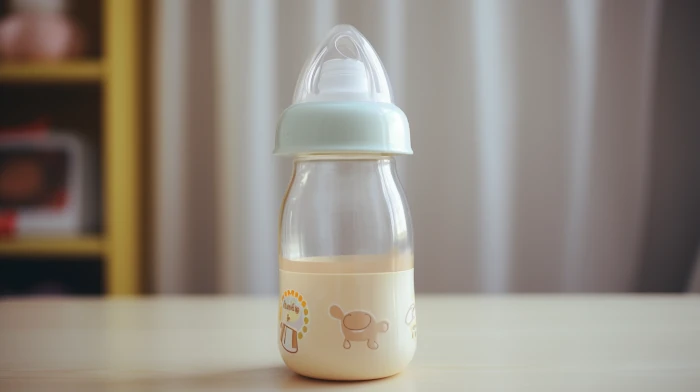Breastfeeding is essential for newborns, providing crucial nutrients and helping develop their immune system. However, in recent years, an increasing number of people have turned to purchasing breast milk online, which can have hidden dangers. Studies have shown that most of the breast milk bought online is contaminated with bacteria and can potentially be harmful to infants. In this article, we will dive into how this contamination happens, its dangers, and how to ensure the safety of the breast milk consumed by your baby.
Bacteria in Online Breast Milk
Research conducted by the Center for Biobehavioral Health at the Research Institute at Nationwide Children’s Hospital discovered that a whopping 75 percent of breast milk samples purchased online contained dangerously high levels of bacteria. Contributing factors to the contamination include poor hand hygiene, unclean containers, and unsanitary breast milk pump parts.
Among the contaminated samples, some even showed traces of fecal matter and salmonella. However, not all harmful bacteria come from poor hygiene practices. The methods used for shipping and storing breast milk play a crucial role in determining the quality and safety of the product. If the milk is not stored and transported correctly within the right temperature range, it can quickly lead to bacterial growth and spoilage.
Potential Health Hazards
Considering that infants have underdeveloped immune systems, exposing them to contaminated breast milk can lead to serious health risks. Bacterial infections resulting from the consumption of tainted milk can cause gastrointestinal issues, fever, and even more severe conditions like necrotizing enterocolitis, a life-threatening condition that affects thousands of infants each year.
In addition to bacterial contamination, there is also a chance that the milk could contain traces of medication, drugs, or alcohol consumed by the donor. These substances can be harmful to a developing infant, causing side effects and potential complications.
Safer Alternatives
If you’re unable to provide breast milk for your baby, seeking safer alternatives to buying milk online is crucial. Milk banks are a great option, as they offer a regulated and safer source of breast milk. Donors to these banks undergo rigorous screening processes and receive proper handling instructions to minimize contamination.
Once the milk is collected, it undergoes pasteurization, killing most potentially harmful bacteria without significantly altering the milk’s nutritional content. Milk banks then test the milk to ensure its safety before distribution.
Home Pasteurization
For those who want to make sure their breast milk is safe, even when obtained from a trusted source, home pasteurization is an option. The process involves heating the milk to a specific temperature for a certain amount of time, effectively killing most harmful bacteria. It’s important to follow proper pasteurization guidelines to ensure that you don’t accidentally destroy the essential nutrients and proteins found in breast milk.
Proper Storage and Handling
Even if the breast milk is pasteurized, it’s vital to store and handle it correctly to maintain its quality and safety. Milk should be stored in clean, airtight containers and kept in the refrigerator or freezer until it’s needed. Moreover, never refreeze thawed milk, as it can facilitate bacterial growth.
When it’s time to feed your baby, use a bottle warmer or warm water bath to heat the milk, avoiding microwaves as they can create hot spots that can burn your baby’s mouth. Also, don’t forget to ensure your hands and all feeding equipment are clean and sanitized before handling breast milk.
Conclusion
Breastfeeding is the best way to provide your baby with the nutrients and immune support they need. However, if circumstances prevent you from providing your milk, it’s essential to be cautious and well-informed when sourcing breast milk from other sources. Purchasing milk online carries inherent risks, including bacterial contamination and spoilage.
Embrace safer alternatives like milk banks, home pasteurization, and proper storage and handling methods to guarantee your baby’s health and safety. By taking these steps, you ensure that your baby receives the nourishment and protection they require for a healthy start in life.



